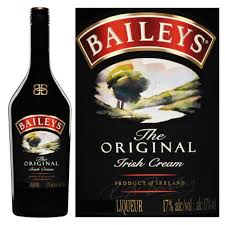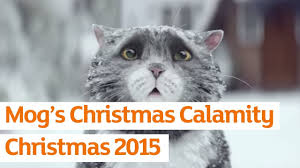

 In response to a query, I wrote here yesterday about my usual Christmastime traditions over the years, and how some of my traditions date back many years, while others are of much more recent vintage, and are perhaps best described as being on the road to becoming tradition, although exactly where that demarcation line is drawn, is not completely clear to me. Christmas traditions are important, but not immutable, I think. To some extent, they seem to me to be dependent on where we are both in life, as it were, and geography, which even in a very virtual world, still matters.
In response to a query, I wrote here yesterday about my usual Christmastime traditions over the years, and how some of my traditions date back many years, while others are of much more recent vintage, and are perhaps best described as being on the road to becoming tradition, although exactly where that demarcation line is drawn, is not completely clear to me. Christmas traditions are important, but not immutable, I think. To some extent, they seem to me to be dependent on where we are both in life, as it were, and geography, which even in a very virtual world, still matters.
While I touched on food, be it sausage meat dressing or stuffing for Jeanette’s perfectly cooked juicy Christmas turkey, Land O’Lakes sour cream cornbread, Christmas fruitcake, whether it be from the monks of Le Magasin de l’Abbayea Val Notre-Dame in Saint-Jean-de-Matha, Quebec, or my local Safeway’s honey and ground almond marzipan-icing topped offerings; as well as the classic Christmas movie genre, I might well have added a few more traditions I developed over the years that festively often blended the personal and professional, private and public.
Ecclesiastes (hello Qoheleth, hello King Solomon?) had it about right, I think, when whosoever he was wrote, “To every thing there is a season, and a time to every purpose under the heaven.” In terms of the Christmas season for many that means travelling long miles only to be thrust together in close quarters with other annually seasonally-close family members and friends who hold somewhat different cultural, political, sports or even religious beliefs than you do. In terms of the latter, this happens even among Christians, hard as that may be to believe, marking the birth of our saviour some 2,000-plus years ago in Bethlehem – or is it Nazareth? Take your pick. The Gospels of Saint Matthew and Saint Luke opt for Bethlehem, while Saint Mark and Saint John seem to lean more toward Nazareth.
As for the year, month or day of Jesus’ birth, you can likely rule out Dec. 25 for the latter two and settle on sometime between 7BC and 4BC for the year. Pope-emeritus Benedict XVI, in his book, Jesus of Nazareth: The Infancy Narratives, published in November 2012, wrote Jesus was born several years earlier than commonly believed because the entire Christian calendar is based on a miscalculation by a sixth-century monk known as Dionysius Exiguus, or in English, Dennis the Small.
Fast-forward a couple of thousand years and it is Christmas 1996. I am working as the managing editor of The Kingston Net-Times, during the pioneering days of Canadian online journalism. From day one, we published no print edition and our local stories in that groundbreaking digital newspaper were updated on the fly throughout the day, but there were few bells and whistles, as very, very few of our online readers had cable broadband internet in 1996. Who remembers dial-up?
On Christmas Day 1996, I was called at home by a father who read us online and wondered if we could take a few minutes to put up the famous “Yes, Virginia, there is a Santa Claus,” letter to the editor and the editorial response for his young daughter.
The letter and editorial had long been in the public domain. So we did. On Christmas Day. Eight-year-old Virginia O’Hanlon wrote the long-ago letter to the editor of the New York Sun, and the quick response was printed as an unsigned editorial Sept. 21, 1897. The response of veteran newsman Francis Pharcellus Church has since become history’s most reprinted newspaper editorial.
The following year at Christmas 1997, I was back in Peterborough, Ontario at the Peterborough Examiner, a print-only daily newspaper back in those days, where I had worked previously from 1985 to 1989. During my first stint, I was the court beat reporter. Now, I was the city hall reporter. The Examiner, of course, was the paper Robertson Davies edited between 1942 and 1955. It was while editing the Peterborough Examiner that Davies, considered by townspeople as an eccentric bearded figure in the small-town world of Peterborough in the 1940s, would establish himself as one of Canada’s most important 20th century literary figures with the creation and development of his Samuel Marchbanks character, mining his daily newspaper experiences in the Queen of the Kawarthas for many of the characters and situations, which would appear in his novels and plays.
On Dec. 23, 1997, I was at a dinner party hosted by the late playwright Rhonda Payne at her home on Parkhill Road East in Peterborough. I had met Rhonda, author of the play “Stars in the Sky Morning,” a tale of the hardships of women on the Northern Peninsula of Newfoundland, a month earlier at Karen Hicks – at another dinner party. The National Post described Rhonda in 1999 as a “national treasure” and if ever there was a bon vivant, it was Rhonda, which is why the evening was so convivial and is perhaps what induced me to have more red wine at dinner than I might normally during the work week. You see, the Examiner had a long tradition of its own of granting employees what was quaintly termed “early leaving” at noon on both Christmas Eve and New Years Eve. What’s an extra glass, or maybe even two, of red, I thought to myself? Tomorrow is Christmas Eve, and really, how hard can it be? All I have to do is more or less physically show up in the newsroom for the half-day morning.
When I got home from Rhonda’s dinner party that night, the red light was flashing repeatedly and rapidly on my old General Electric answering machine (I think voicemail existed, but was still in its early years). It seemed odd to have so many messages awaiting receipt, but I went ahead and pushed the play button. Lo and behold it was Jim Hendry, then city editor of the Examiner, telling me that there was going to be a press conference at 8 a.m. Dec. 24 at the Peterborough County courthouse with City of Peterborough and County of Peterborough officials on hand to answer questions about the province seizing welfare files earlier in the day on Dec. 23. Many of the details are blurry after 22 years, but I believe welfare was perhaps a shared city-county municipal responsibility in those days, and the province was intent on upsetting that apple cart through shifting responsibilities and financial obligations between the two entities in what was called “downloading” in the days of the Harris government.
I barely survived the press conference. Once back in the second-floor newsroom of the old Peterborough Examiner building at Hunter and Water streets, I quickly picked up the telephone on my desk, across from Jack Marchen, then the court reporter, to give the late Ron Chittick, then chief administrative officer of the City of Peterborough, a quick call before he vanished for Christmas, as I realized back in the office I had a couple of unanswered questions still. Jack Marchen had been sitting across the desk from me in the newsroom when I left in August 1989 and he was still sitting across the desk from me when I returned. Phil Tyson, who sat beside me when I left, was also sitting beside me when I returned.
Time elapsed had foolishly led me to forget one of Jack’s Christmas traditions, which I should have remembered from the 1980s. But eight years had passed since then and there had been the dinner party the previous evening. Jack, unofficially, of course, and off-the-record, if anyone asks, traditionally would walk around the newsroom the morning of Christmas Eve, a bottle of Baileys Irish Cream liqueur and white Styrofoam coffee cups in hand, to pass out some Christmas cheer to his friends and colleagues.
I’m not sure what I was thinking, or even if I was thinking, but I happily accepted my coffee cup full of Baileys, as Jack handed it to me, which in all fairness kind of looked like a cup of coffee for those like myself, who go heavy on the cream. I slugged it back in one gulp, which does in retrospect seem kind of odd if I actually thought it might be hot coffee, and my brain froze instantaneously – mid-sentence, mid-question to Ron. For a thirty-second eternity, or so it seemed, there was dead air on the phone line as I failed to articulate the remainder of the question I was posing to Ron.
That, friends, was tradition and Christmas Eve 1997.
A decade later, editing the Thompson Citizen and Nickel Belt News weekly newspapers here in Northern Manitoba, I resumed publishing the “Yes, Virginia, there is a Santa Claus” letter to the editor from 2007 to 2013, below a bold-faced and italicized introduction, which read:
“Editor’s note: Eight-year-old Virginia O’Hanlon wrote a letter to the editor of the New York Sun, and the quick response was printed as an unsigned editorial Sept. 21, 1897. The response of veteran newsman Francis Pharcellus Church has since become history’s most reprinted newspaper editorial. We, at the Thompson Citizen, are pleased to be part of that tradition and republishing it at Christmas has become an annual hallmark of the festive season for us here as well since Dec. 19, 2007. Merry Christmas, one and all.
John Barker.”
You can read it in full here at: https://www.thompsoncitizen.net/opinion/editorial/yes-virginia-there-is-a-santa-claus-1.1367424
While at the Thompson Citizen and Nickel Belt News, I also much enjoyed re-printing Garwood Robb’s “A special gift from years ago” as a guest “Soundings” column on the editorial page around Christmas. It opens: “My first teaching assignment was in Thompson in 1968. Mary was a student of mine. She was from an extremely poor and dysfunctional family who lived on the edge of town about a quarter mile from the town’s railway station.
“On the last day of school before Christmas holidays many of the students brought me gifts….”
The column was first published in the Grandview Exponent, which serves the communities of Grandview and Gilbert Plains in the Parkland region of Manitoba, on Dec. 20, 2005, and later republished in Garwood Robb’s blog, “In My Own Words,” which can be found online at either: http://garwood2009.blogspot.ca/2009/12/memory-from-long-agorevisited.html or https://www.thompsoncitizen.net/opinion/columnists/soundings-1.1360060
Garwood lived on Centennial Drive East in Thompson and taught at Westwood Elementary School from September 1968 to June 1972 when he moved to Winnipeg.
And while it is likely too soon to call it a tradition, I’ve become rather fond in recent years of re-posting on Facebook at least two YouTube videos: “Mog’s Christmas Calamity,” (https://www.youtube.com/watch?v=kuRn2S7iPNU&feature=share) based on author and illustrator Judith Kerr’s Mog, who first appeared in the book “Mog the Forgetful Cat,” in 1970, and who falls asleep on Christmas Eve, and unwittingly creates unimaginable chaos, leading the Thomas family to fear that Christmas will have to be cancelled, and Igniter Media’s “A Social Network Christmas,” an artistic take on how the story of the nativity might have read had a social network existed at the time of Jesus’s birth, which you will find here: https://www.youtube.com/watch?v=sghwe4TYY18
You can also follow me on Twitter at: https://twitter.com/jwbarker22





